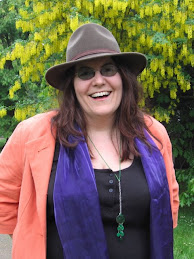
Most famous for his close friendship with the poet Philip Sidney, Greville was born in Warwickshire and attended Shrewsbury School. Later, as a royal courtier, he was made 1st Baron Lord Brooke by James I. This was in recognition of his services to the crown, particularly in the Treasury.
Now a peer of the realm, Fulke Greville was also granted Warwick Castle.
He made substantial improvements to the Castle, allegedly amounting to some £20,000 - a vast sum in those days! It became his pet project, and he was still working on the renovations when he died in 1628, attacked by a disgruntled servant.

The most fascinating part of this story, for me at least, is that Sir Fulke Greville was clearly the first poet-in-residence at Warwick!
A member of the élite literary group, the 'Areopagus', along with the likes of Sir Philip Sidney and Sir Edward Dyer, Greville was a poet of high seriousness, keen to import classical metre into English verse, which he presumably saw as lagging behind the rest of European literature in the wake of the Italian Renaissance.
Influenced by the Italian poet Petrarch and his beautiful sonnets of unrequited love, Fulke Greville himself wrote sonnets as well as longer poems on difficult political and moral themes. A great intellectual, many of his poems have been criticised for being too obscure!
When his friend Sir Philip Sidney died on military campaign in the Netherlands, Greville famously wrote his biography, commemorating the greater poet's life and work.
*
So that's the story of our first ever poet-in-residence at Warwick!
Over the coming months, I'm going to investigate Fulke Greville more closely, and hopefully some new poems of my own will come out of that investigation. Perhaps even a sonnet or two!
First of all, a fact-finding trip to Warwick Castle needs to be planned. Meanwhile, you can find out more about Sir Fulke Greville here on Wikipedia.




No comments:
Post a Comment